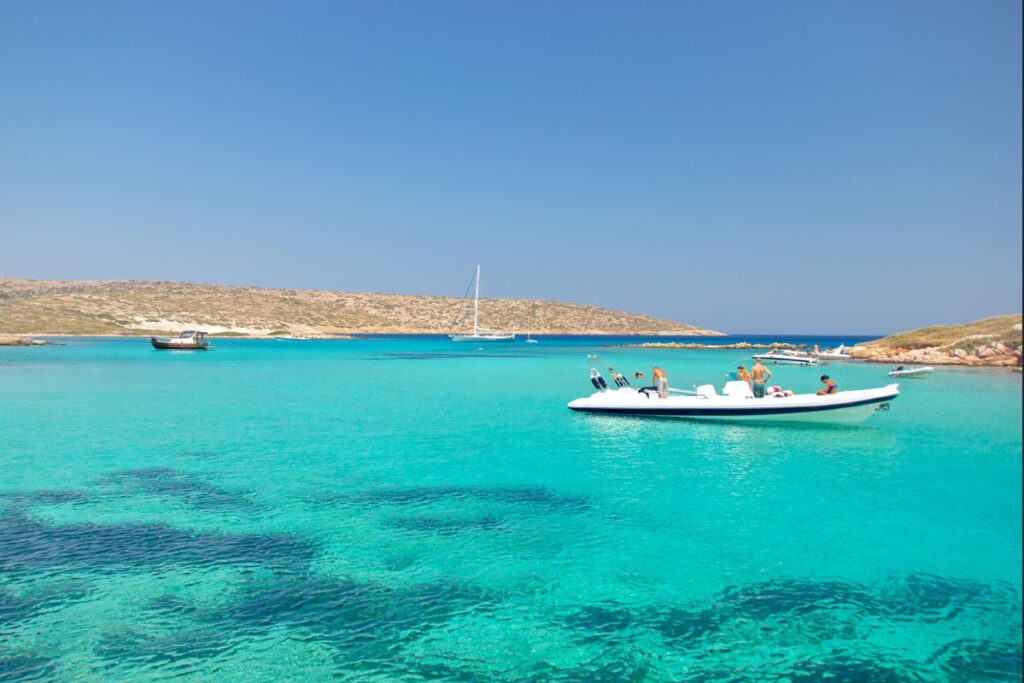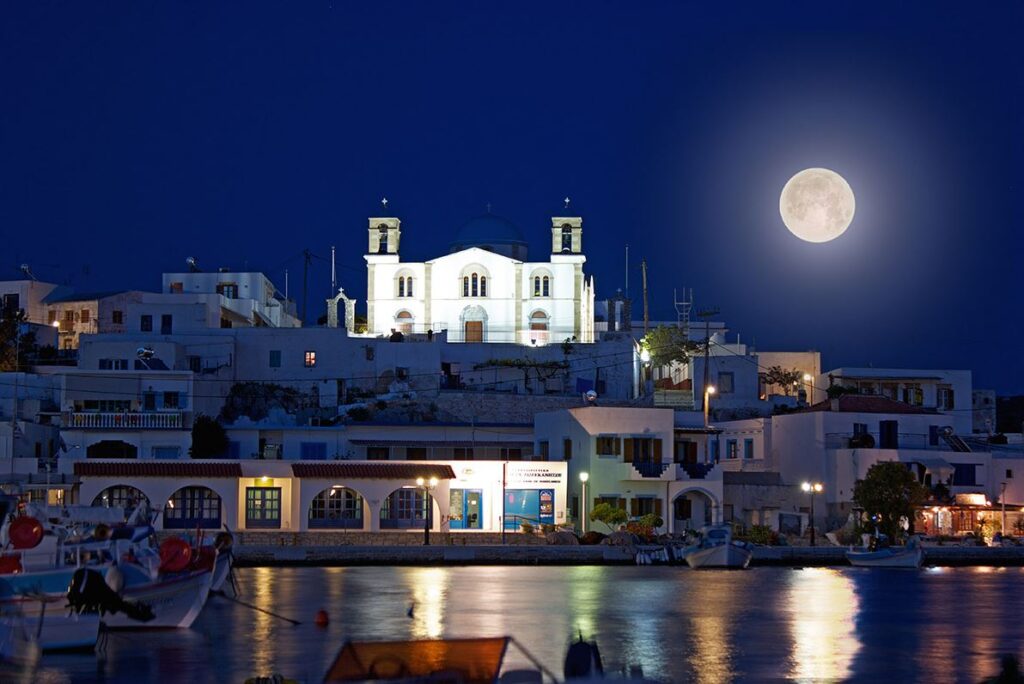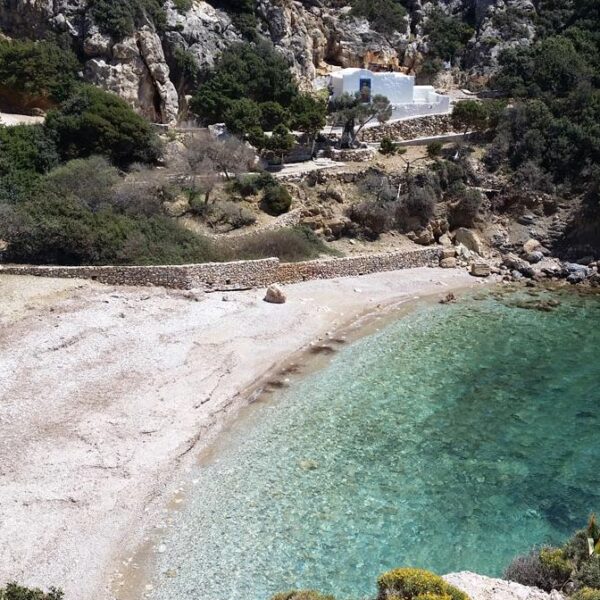While most Greek islands are facing the consequences of overtourism (water scarcity, obstruction of free access to beaches, tons of waste in the streets), the islands of Lípsi, an archipelago of 25 small islands at the edges of the Aegean Sea, are resisting vigorously. Life in Lipsi, specifically on the largest and only inhabited island, unfolds at a slow pace, where the natural and untouched beauty of the landscapes prevails. There are no umbrellas to rent on the beaches, as is the case on the vast majority of Greek islands, and access to them is completely free.
"Every year, the Ministry of Finance asks us which beaches we want to allocate for commercial use. Our response remains the same every time: none! All the beaches on the island are untouched, and every beachgoer can bring their own umbrella and beach chair and take them back," explains the mayor of Lipsi, Fotis Mangos.
The objective of the municipal authority is to preserve the character of the island, without falling into the trap of mass tourism, while protecting the natural environment.
Moreover, sustainability is one of the characteristics of Lipsi.
96% of the waste is recycled
In the streets of Lipsi, you will not find any trash cans. On the island, the system of source separation is applied and garbage collection is done door to door.
"Our goal was to create a clean island and we have achieved it. A special team goes to each household on certain days and specific times of the week to collect waste. All we ask of citizens is that waste be separated into metal, paper, plastic, glass, and aluminum. Mixed waste is then buried in a sanitary landfill and recyclable materials are compacted into bales and sent to a recycling center in Athens," explains Fotis Mangos, emphasizing that the island has managed to recycle 96% of the waste.

Water Desalination
Another area where Lipsi stands out, unlike other islands in the Aegean Sea, is in terms of water self-sufficiency. Over the past six years, in collaboration with the Ministry of Maritime Affairs and Insular Policy, a desalination unit with a capacity of 600m3 per day has been installed, covering 100% of the island's water needs 24 hours a day, all year round.
"We provide quality water and will soon install a remote monitoring system for the reservoirs to ensure that the water is drinkable. This way, residents will be able to drink water directly from the tap in their homes, which is rare on islands with over 30,000 inhabitants."
According to the mayor, what visitors come looking for is an authentic place and the opportunity to enjoy a 100% untouched environment. "They want to be truly disconnected from urban lifestyle, in a paradisiacal place without giving up on comfort, which Lipsi offers."
Underwater Gardens
What is true on land is also true at sea. In recent years, the Marine Protection Institute "Archipelagos", a non-profit organization that collaborates with master's and doctoral students from various universities in Europe and America, has been conducting underwater planting experiments. The goal, as explained by Fotis Mangos, is to increase the seagrass meadows that release oxygen and trap harmful carbon footprints circulating in the sea and atmosphere. "Seagrass meadows also serve as a refuge for small fish and nymphs, protecting them from their predators. The more seagrass meadows we have, the better it is for the marine ecosystem."
Satisfied Residents
Loved by tourists for its natural beauty, Lipsi is also appreciated by the residents who live there year-round for its quality of life. They particularly endorse the decision to have placed sustainable development at the heart of the project.
"Everything is untouched there and people are very satisfied with the way of life. In fact, the region is a hub of attraction for many foreigners, mainly French, who are buying land. This results in an increase in construction activity on the island and creates jobs. So, the young people do not leave for big cities, but stay here, work, and start a family. It's so promising!", says Maria Tzialera, a teacher and resident of the island.
All these efforts are rewarded. By choosing not to allow the rental of umbrellas and sun loungers on the beaches, the municipality of Lipsi was awarded the Destination Branding 2023 prize for sustainable tourism by the World Travel Awards. In parallel, international media such as Euronews, the Italian magazine "Vanity Fair," and the British newspaper "Metro" have ranked Lipsi among the most high-quality and eco-friendly destinations in the world.
* Lipsi (sometimes also spelled Leipsoi, or Lipsó) with an area of about 16 km2, is the only inhabited island of a mini-archipelago of 25 islets of a few tens of square meters (source Wikipedia)

